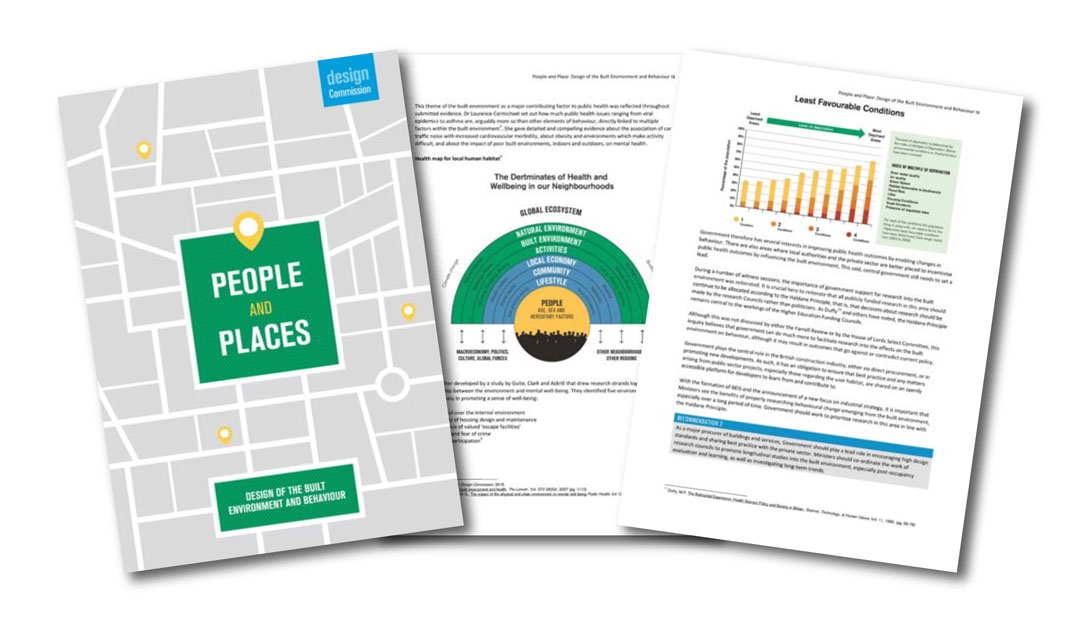
Design Commission report calls on devolved governments, mayors and local authorities to step up in the wake of housing shortages, social cohesion and better living space planning.
This week Richard Rogers, Lord Rogers of Riverside, launched the People and Places: Design of the Built Environment and Behaviour report in Parliament, which calls for central government to give local authorities and city mayors more responsibility over housing, healthcare and transport infrastructure.
The report — coming after over a year of study and evidence gathering from some of Britain’s leading experts in architecture and design — calls for central government to give local authorities and city mayors more responsibility over housing, healthcare and transport infrastructure.
By prioritising human needs and behaviour in the design process, through moves such as setting minimum design standards, setting targets for provision of pedestrian and cycling infrastructure, and regulating Health Impact Assessments as part of the planning process, the Commission argues that the built environment will be easier to navigate, work and live in.
If implemented, this will lead to healthier work environment, whilst improving Britain’s public realm and open spaces.
The Design Commission argues that by focusing on local needs through local authorities, it will result in better productivity, social cohesion and improved health and environmental outcomes across the country.
It also considers ways to approach the housing shortage, based on best-practice from abroad, developing the design principles for British homes, and working with existing bodies — especially housings associations — to improve both the quality and quantity of residential stock.
The report additionally recognises that a more interventionist approach to economic development, not least the recently announced industrial strategy, has a role to play in developing a new approach to how Britain’s public places are developed.
The policy recommendations are set out in a way that balances the differing views of various sectors and levels of government.








